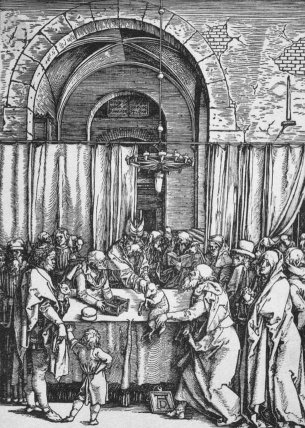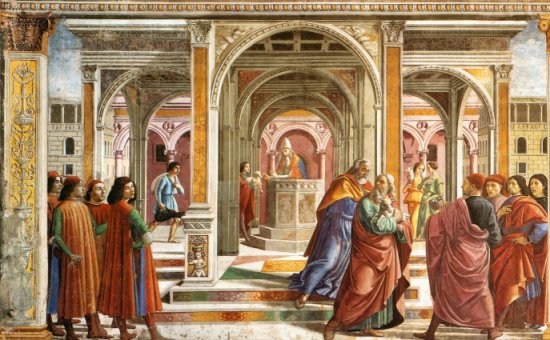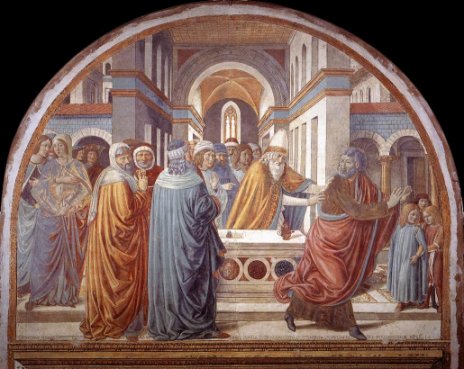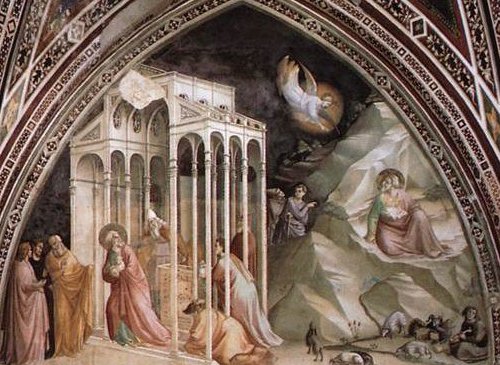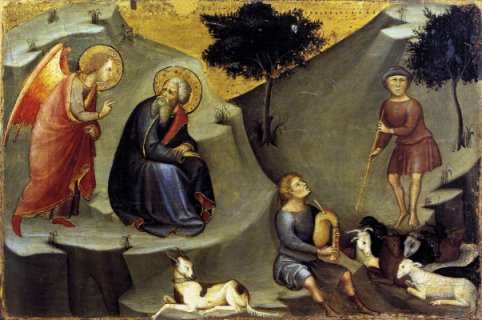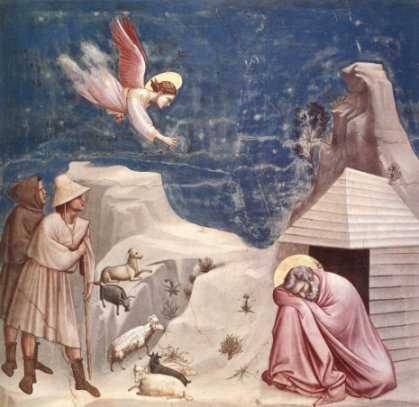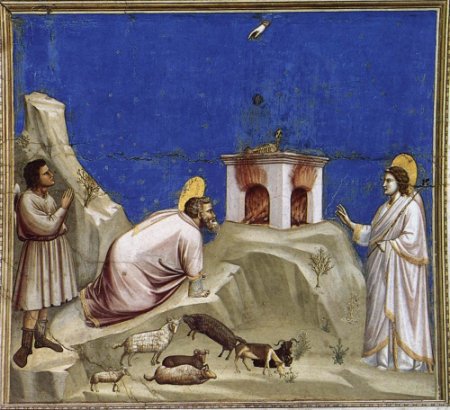|
The Life of the Virgin and the Childhood of Jesus |
|
|
|
|
|
The Protoevangelium of James tells to story
of Mary's parents, Anne and Joachim. In a familiar biblical
type-scene, they are an elderly couple without children. An angelic
annunciation puts this right, but not before Joachim suffers the contempt
of his peers in the temple and retires for the obligatory forty days in
the wilderness. 'In the records of the twelve tribes of Israel was Joachim, a man rich exceedingly; and he brought his offerings double, saying: There shall be of my superabundance to all the people, and there shall be the offering for my forgiveness to the Lord for a propitiation for me. For the great day of the Lord was at hand, and the sons of Israel were bringing their offerings. And there stood over against him Rubim, saying: It is not meet for you first to bring your offerings, because you have not made seed in Israel. And Joachim was exceedingly grieved, and went away to the registers of the twelve tribes of the people, saying: I shall see the registers of the twelve tribes of Israel, as to whether I alone have not made seed in Israel. And he searched, and found that all the righteous had raised up seed in Israel. And he called to mind the patriarch Abraham, that in the last day God gave him a son Isaac. And Joachim was exceedingly grieved, and did not come into the presence of his wife; but he retired to the desert, and there pitched his tent, and fasted forty days and forty nights, saying in himself: I will not go down either for food or for drink until the Lord my God shall look upon me, and prayer shall be my food and drink.' (Chapter 1) |
|
|
|
|
|
|
|
|
While in the desert, Joachim receives some good news: 'For an angel of the Lord went down to him, saying: Joachim, Joachim, the Lord God has heard your prayer. Go down hence; for, behold, your wife Anna shall conceive. And Joachim went down and called his shepherds, saying: Bring me hither ten she-lambs without spot or blemish, and they shall be for the Lord my God; and bring me twelve tender calves, and they shall be for the priests and the elders; and a hundred goats for all the people.' (From Chapter 4) |
|
|
|
|
|
|
|
